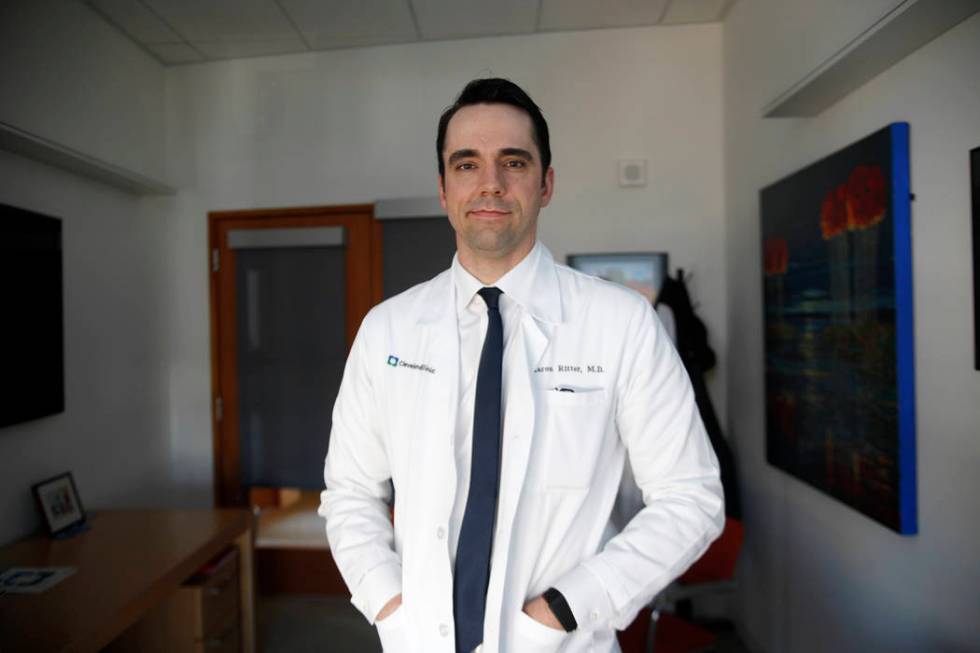Las Vegas-area patients to get Alzheimer’s drug during FDA review

The director of clinical trials for the Cleveland Clinic Lou Ruvo Center for Brain Health in Las Vegas hailed as “great news” Tuesday’s announcement by the drug company Biogen that it would seek federal approval for a new drug to treat cognitive decline in Alzheimer’s patients.
“It’s a step in the right direction toward a therapy that may change the course of a disease that affects millions of Americans,” said Dr. Aaron Ritter, the principal investigator in a study of the drug conducted at the Ruvo Center.
The announcement by Biogen that it will seek Food and Drug Administration approval came as a surprise. Earlier this year it had halted two studies of the drug when partial results indicated it would not be successful. But a new analysis with more results now suggests that the drug at its highest dose helps reduce a decline in thinking skills, the company said.
The drug, called aducanumab, aims to help the body clear harmful plaque from the brain. Cambridge, Massachusetts-based Biogen is developing it with a Japanese company, Eisai Co. Ltd. The buildup of amyloid plaque is thought to be the primary cause of Alzheimer’s, a form of dementia that affects more than 5 million people in the United States and millions more worldwide.
The two studies tested aducanumab, given as monthly infusions, in more than 3,000 patients with mild cognitive impairment or early dementia from Alzheimer’s. The company said Tuesday that in one study, those given a high dose showed 23 percent less decline on one measure of thinking skills and smaller declines on other measures.
The Ruvo Center participated in the study in which the high dose of the drug was given.
“Our sense from the study was that people were stabilizing, that they were not getting worse,” Ritter said. Because it was a double-blind study, however, doctors at the Ruvo Center did not know who was receiving the drug and who was receiving a placebo.
“We were devastated when we found they were actually stopping the study early,” he continued. “We’re cautiously optimistic that this is a sign of our first breakthrough. It just comes in a very unusual manner.”
He described the drug’s resurgence as akin to doctors having “called a code” on a patient who wasn’t breathing but then the “patient pops back to life.” The reversal on the studies’ findings causes Ritter a degree of skepticism.
“The findings are still preliminary, and we’re still waiting to hear exactly what the outcome of the study was,” he said.
The drug could be a breakthrough because current treatments for Alzheimer’s only temporarily ease symptoms, Ritter said. They don’t slow or stop the progression of the disease.
Biogen said it would offer aducanumab now to patients enrolled in these and earlier studies, including the nine patients who participated in the study at the Ruvo Center, which began testing the drug in 2016 and continued until testing was halted earlier this year. The FDA could determine that more testing of the drug is needed before determining whether the drug can be made more widely available.
The Associated Press contributed to this report. Contact Mary Hynes at mhynes@reviewjournal.com or 702-383-0336. Follow @MaryHynes1 on Twitter.